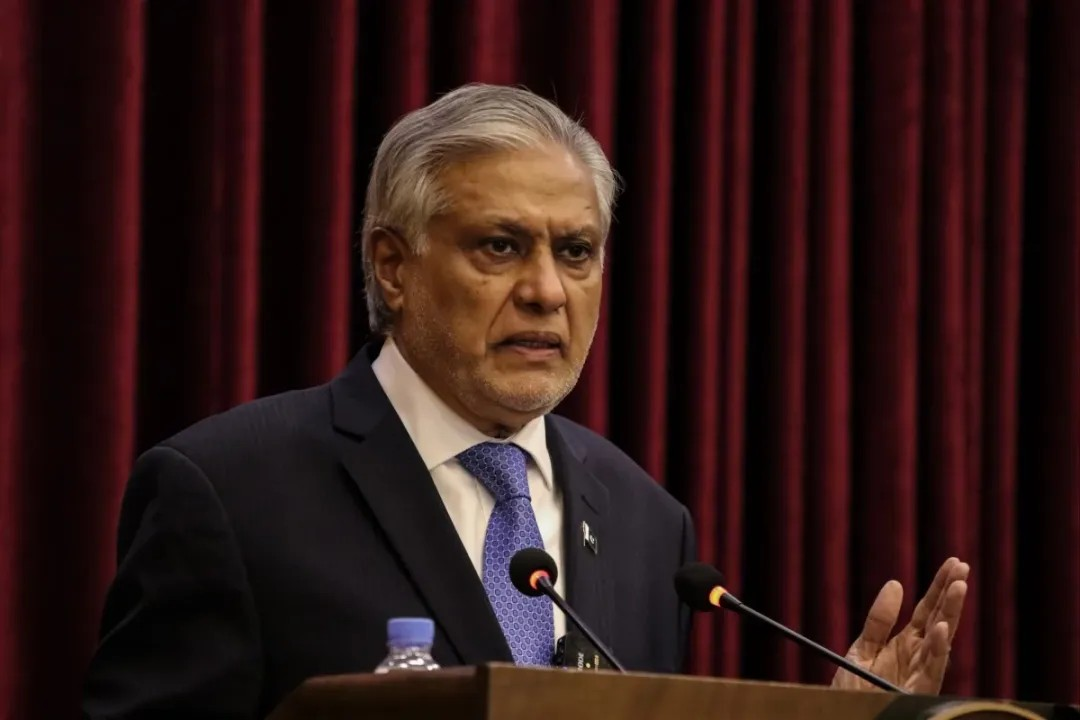Li Hongmei Interviewed by South China Morning Post
Li Hongmei source:South China Morning Post
source:South China Morning Post
Pakistani Foreign Minister Ishaq Dar’s three-day visit to China is expected to highlight both nations’ growing enthusiasm for deepening defence and security cooperation, according to analysts.
However, as Dar’s first overseas trip since the military tensions with neighbouring power India, the visit was likely to be viewed by New Delhi as a show of support for Islamabad – even though it was probably arranged well before the conflict, they added.
Dar, who is also deputy prime minister, will be in Beijing until Wednesday. He is expected to hold talks with Chinese Foreign Minister Wang Yi as well as take part in a trilateral foreign minister-level strategic dialogue with Afghanistan’s acting foreign minister.
Lin Minwang, a professor and deputy director at Fudan University’s Centre of South Asia Studies, said Beijing and Islamabad were likely to seek closer defence ties.
“Following the skirmishes and the unexpected success of Pakistan’s Chinese-made fighter jets and missiles, both nations are likely to show heightened enthusiasm and initiative to deepen their military and defence collaboration,” he said.
Among the most striking revelations of the recent hostilities was Pakistan’s reported success in shooting down French-designed Rafale aircraft using the J-10C fighter equipped with active radar-guided long-range air-to-air PL-15 missiles, also from China.
Experts also noted that Wang and Dar would be likely to discuss potential economic cooperation, with Pakistan’s economy plagued by high inflation, trade deficits and debt.
Pakistan’s military arsenal relies heavily on Chinese weaponry, which accounted for 81 per cent of its arms imports between 2020 and 2024, according to the Stockholm International Peace Research Institute.
According to Lin, Dar’s visit is also likely to involve elements of crisis management and coordination in relation to the Pakistan-India conflict, which could erupt again into military clashes.
“Beijing and Islamabad will no doubt exchange information and insights regarding this regional flashpoint, given that the conflict has not yet fully de-escalated,” he added.
Experts also noted that Wang and Dar would be likely to discuss potential economic cooperation, with Pakistan’s economy plagued by high inflation, trade deficits and debt.
The two countries already have a strong history of cooperation, particularly with the China-Pakistan Economic Corridor, a flagship project of Beijing’s massive infrastructure programme the Belt and Road Initiative.
Military conflict erupted in early May after gunmen killed 26 civilians in Pahalgam, in Indian-administered Kashmir, on April 22. India blamed a Pakistan-backed terrorist group. Islamabad has strongly denied the accusation.
When the conflict came to an abrupt but temporary halt on May 10, Delhi and Islamabad each offered differing accounts of the efforts leading up to the ceasefire, which the US also said it had mediated.
While Pakistan credited multiple countries – including Britain, Turkey and Saudi Arabia – India downplayed third-party involvement, consistent with its long-standing position of treating the Kashmir issue as a bilateral or internal matter.
Ivan Lidarev, a visiting research fellow at the Institute of South Asian Studies at the National University of Singapore, noted that Pakistan aimed to underline the strength of its ties with China by choosing it as the destination for Dar’s first foreign visit, as well as sending signals to both India and the United States.
“For India, [the message is] that Pakistan enjoys Chinese support in case of a new escalation, and to the US, that a disengagement from mediation or support for India will push Islamabad even further into China’s orbit,” he said
According to Lidarev, India is likely to view the visit as both a show of support for Pakistan and a subtle warning from Beijing that it might back Islamabad much more decisively if antagonised.
“The visit is likely to be seen within the context of China’s position during the whole India-Pakistan crisis and so will reinforce Delhi’s mistrust of Beijing,” he said, adding that the view was unlikely to derail the continuing thaw between Beijing and New Delhi.
Meanwhile, Lin cautioned against over-interpretation of the visit’s timing, pointing out that it involved a three-way coordination with Afghanistan and could have been planned beforehand.
“From this perspective, Indian professional diplomats are likely to perceive this China-Pakistan engagement rationally,” he said.
Lin agreed that Beijing had to tread carefully, as the conflict placed it in a dilemma – while China was not directly involved and had no interest in fuelling the situation, its weapons were used.
“China seeks to strike a balanced middle ground between India and Pakistan, avoiding any perception of taking sides. However, India will never interpret it that way … China’s ability to play a meaningful mediator role is limited, as any efforts it makes are unlikely to be accepted by India,” he said.
However, Lidarev pointed out that Beijing was not entirely disadvantaged, with the India-Pakistan crisis offering the benefit of exacerbating Delhi’s “two-front dilemma” of having disputes on both its China and Pakistan borders.
“It also refocuses India’s foreign and security policy on Pakistan and in this way keeps Delhi bogged in South Asia, reducing its ability to play a larger role in the Indo-Pacific,” he added.
Li Hongmei, a research fellow at the Shanghai Institutes for International Studies’ Centre for South Asian Studies, noted that while Dar’s visit to China was likely to unsettle Delhi, Islamabad was also under pressure to pursue detente with its neighbours.
“India should avoid overreacting to this visit, and the development of China-India relations has its own internal dynamics. China-Pakistan relations should not be made a prerequisite for China-India relations,” she said.
“With New Delhi facing an unpredictable, ‘America first’ Trump administration, the urgency to stabilise its surrounding environment and foster a well-managed relationship with major powers like China has become even more critical.”


